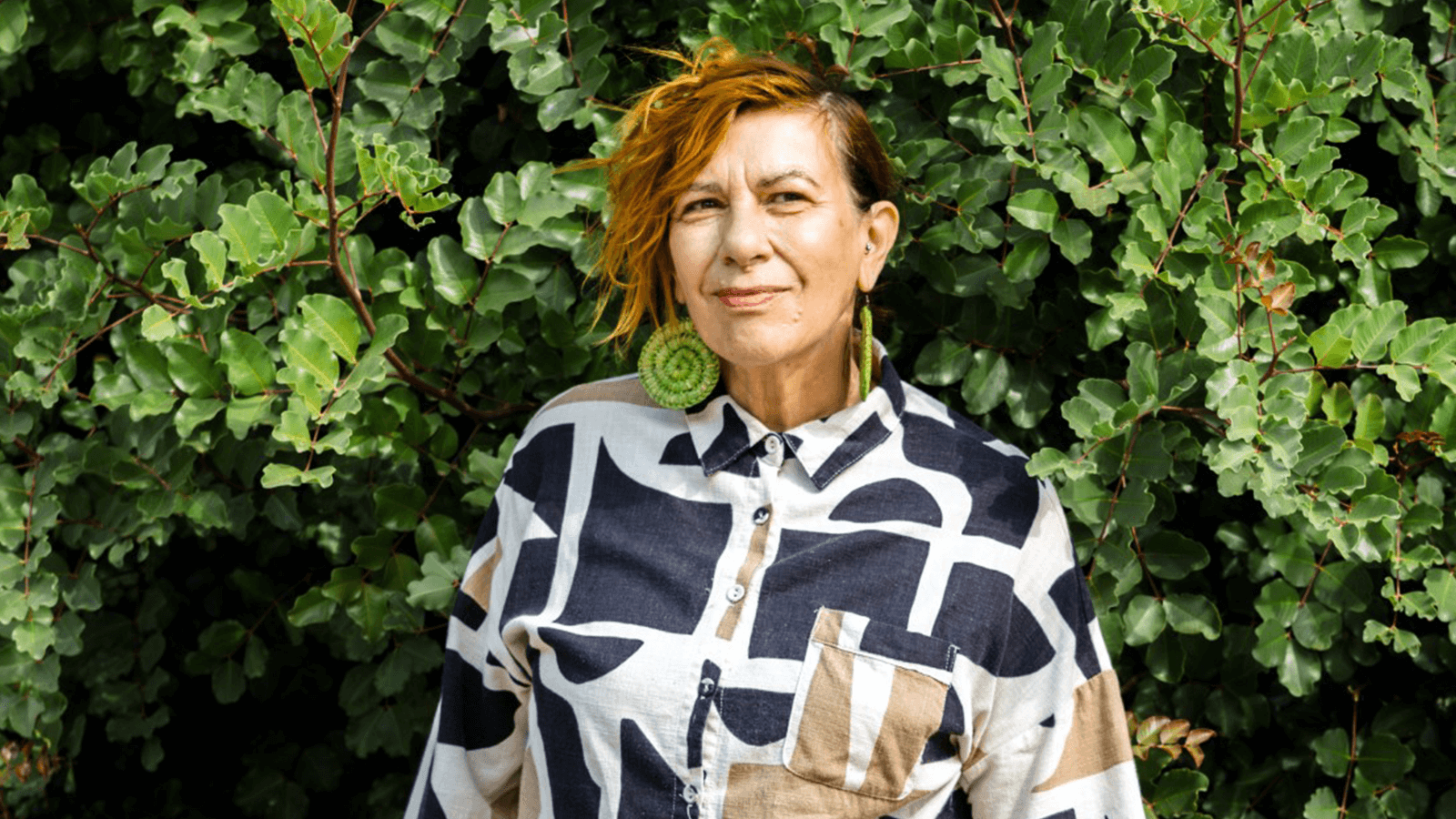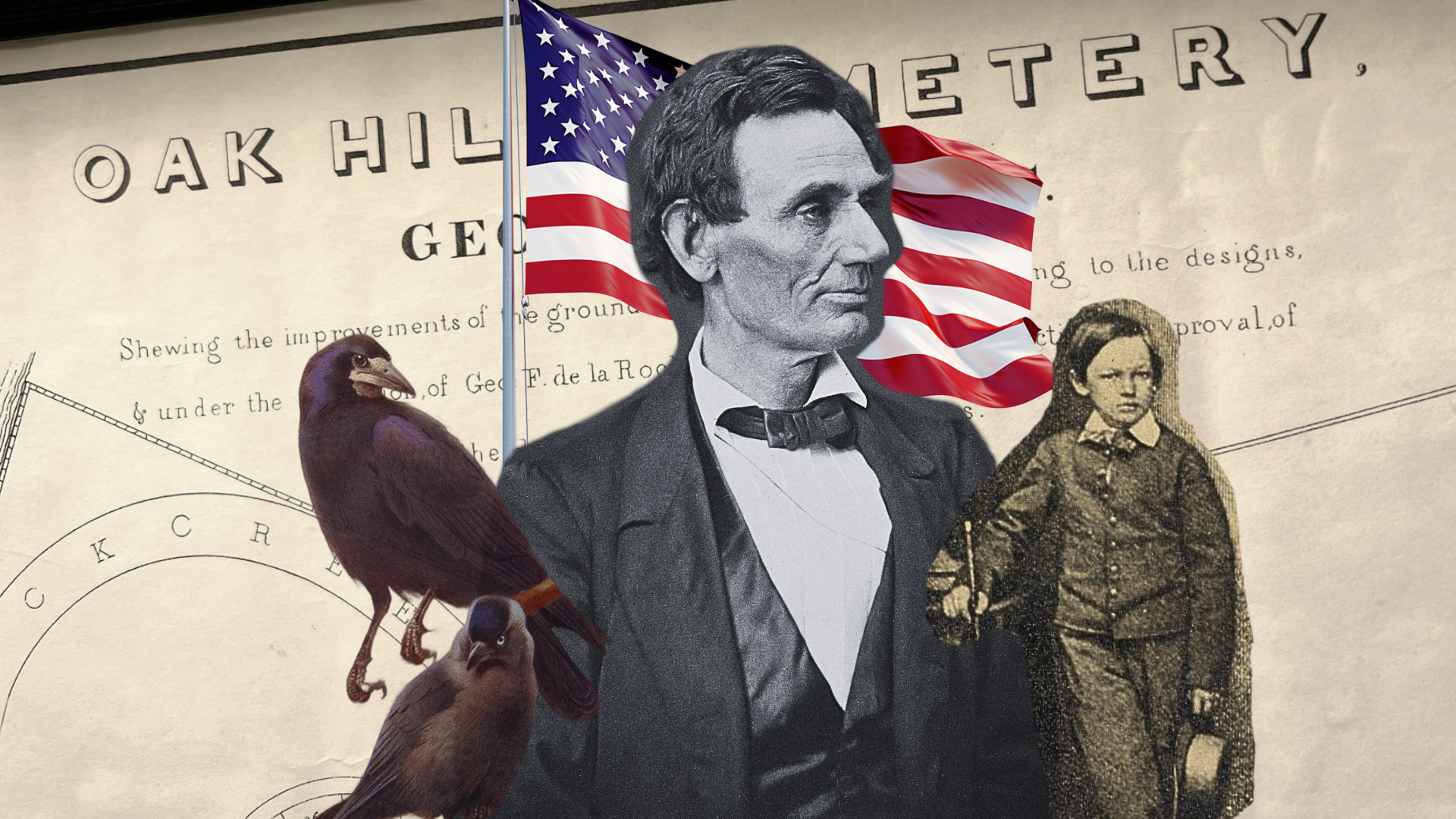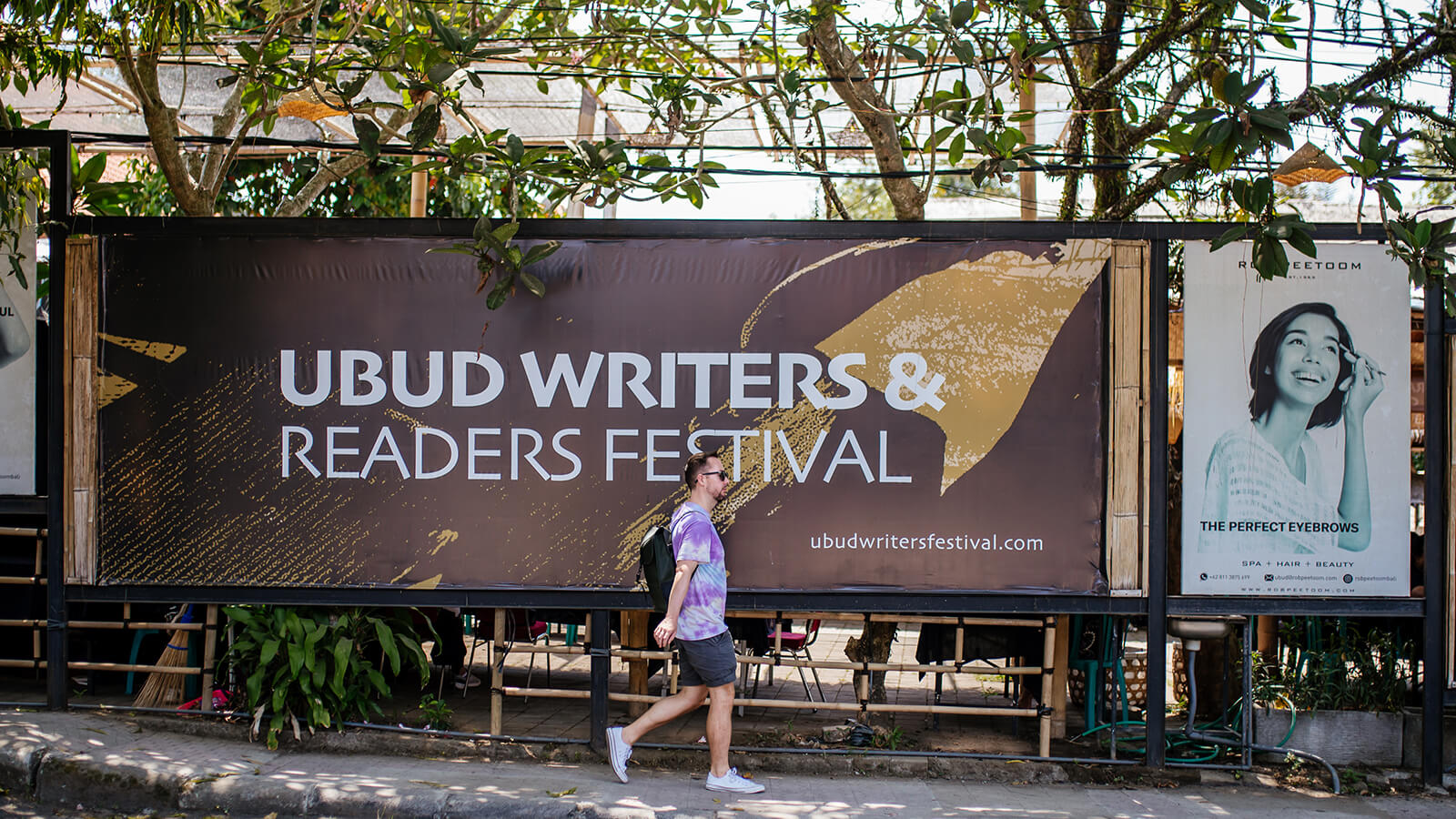“I Carry My Sense Of Belonging Deep Within”: Poet Ali Cobby Eckermann On Connecting With Her Indigenous Heritage
Service95 is partnering with Ubud Writers & Readers Festival in Bali to bring guests a series of events and conversations. The events feature some of the world’s most exciting authors and thinkers, sharing their expertise on topics from women’s rights in conflict to how to write a debut novel. Celebrated Yankunytjatjara poet and author Ali Cobby Eckermann will also be at the festival discussing her latest verse novel, She Is The Earth. Keshia Hannam caught up with her to discuss heritage, assimilation and belonging…
Ali Cobby Eckermann has worked hard to create a sanctuary where she is at one with her ancestors; there she writes, reads and listens to the ancient culture that is her Indigenous Australian heritage – the oldest in our world. It’s something which becomes abundantly clear as we speak:
“This is where I can hear the whispers of the old people, those who lived here before, who are still here.”
Eckermann is one of Australia’s celebrated poets and has toured extensively as Australia’s Poetry Ambassador. She’s won awards in Australia as well as in the US, and is on the board of the First Nations Australia Writers Network. But for this venerated and busy poet, there is always a tension between the world that is, that was, and that we are here to heal and fight for.
Eckermann was delayed in connecting with her Yankunytjatjara culture: as a child of Australia’s Stolen Generations (a dark period in Australia’s history when Indigenous children were removed from their families through government policies between the mid-1800s to the 1970s), she was raised in an adopted Lutheran home. In 1997, aged 34, she found her birth mother, as well as a community that welcomed her back. Eckermann says this saved her, and that reassembling her identity has meant that now country speaks, and nature guides her heart:
“I believe my people truly knew heaven on earth.”
Eckermann’s journey is one of uniting contrasts: history, identity, families and now Australia’s wisdom-keepers with artists and teachers. In the Simpson desert (Australia’s fourth largest, in the centre of the country) she facilitates exhibitions and artist talks. She describes visiting the Lutheran family she grew up with after one such talk in the desert, and while seated around her adopted mother’s table, all holding hands, a young man from her community said grace in traditional language:
“It was very emotional. Love is the key. Both my families love me. Unconditional love removes any need to be jealous and/or judgemental.”
Her writing reflects this duality: not chosen but embraced. Ahead of the Ubud Writers & Readers Festival, where Eckermann is speaking, we wanted to learn about the writer behind She is the Earth, her eighth book and third novel – a powerful exploration of Indigenous identity, resilience and the deep connection between humans and the land. The novel follows the protagonist’s journey as she grapples with trauma, reclaims her cultural heritage and finds strength in her ancestral roots.
One of the main themes I experience when I read your work is a very honest tug back and forth with belonging, or in many ways a lack of it. What is your relationship with that word: ‘belonging’?
Only since finding my birth mother and reconnecting with my Yankunytjatjara family and kin did I realise that belonging is an emotional and spiritual human right; my life has prospered from this belonging. As an adult, the modern day national Australia is so complicated, holds all the power, continues to make gigantic decisions that belittle, control, damage and destroy Aboriginal families, continues to host an assimilating, condoning, racist, paternalistic attitude and dialogue for its own self-importance which continually reminds me I don’t fit. So I carry my sense of belonging deep within.
A line I was drawn to in the early chapters of She is the Earth is: ‘A need to belong, debases me.’ What I read in your words is that the longing to belong can bring us far away from ourselves. Can you share a little bit about your journey with assimilation and undoing that coping mechanism?
For me, assimilation is a self-indulgent demon, created by the hands and minds of others and bears no relationship to our lineage, the oldest continuum in this world. For me, it has taken many years of self-searching to untangle the mess of my removal, the ‘assimilatist’ replacement of nurture fed to an innocent child. It has taken years to train my mind and my moods, to foresee and forestall the energy of assimilation around me. It is exhausting to listen constantly to the broken assimilation promises. I know now choice is not an option, to stray back to that belonging. It is demonic; its main focus remains cultural genocide and the theft of our land.
You talk about poetry being a liberation and medicine. And that poetry flowed from you after finding your birth mother and spending time with the traditional healers of the desert. Would you tell us more about that change?
In hindsight, poetry was my first step away from assimilation. Poetry provided a voice I had not previously spoken. The rows of words on the pages were initially like string untangling, and also like weaving emotion and reasoning together.
What is the relationship between your First Nations heritage and Lutheran upbringing in your work? Can they complement each other, or are they at odds?
Many of my adopted family were involved in missionary work. Many of my Aboriginal family have adopted Christianity; many were forced. So I grew up with the confusion of that, and have spent a lifetime forgiving many people.
How do you balance the need to represent your culture accurately with the desire to make the specifics of culture accessible to a global audience at events such as the Ubud Writers & Readers Festival?
I don’t see this as an unconnected process – I guess it is easier when one realises there is only one lens. If I speak truth and my Ancestors smile, there is little else. I have little attachment to my writings, except for the truth-telling. For me it is always content before form. I believe this is the purpose of the Indigenous storyteller.
Pre-order She Is The Earth by Ali Cobby Eckermann here
Keshia Hannam is a New York-based, Hong Kong-born, Australian-Indian writer, director, producer and speaker. She is editor in chief at the Eastern Standard Times




